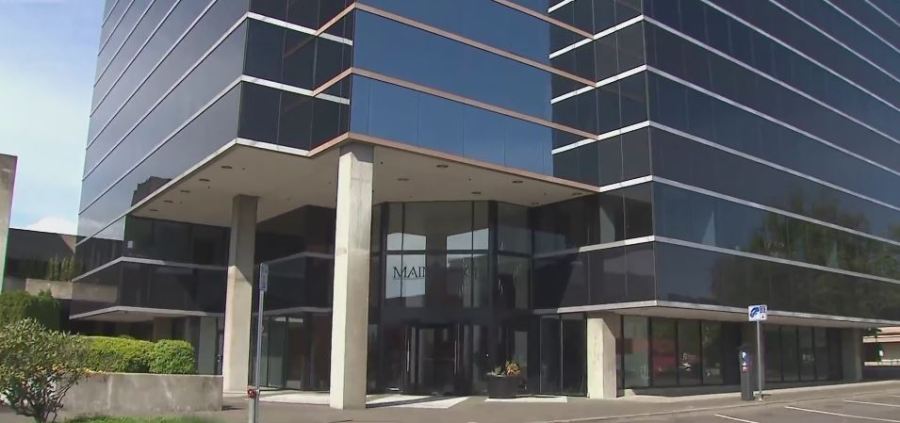PORTLAND, Ore. (KOIN) – The former CEO of a Vancouver-based company who promised a drug that could treat HIV and potentially COVID-19 was indicted Tuesday on federal charges of defrauding investors.
Nadar Pourhassan, 59, of Lake Oswego, was the president and CEO of CytoDyn at the time of the alleged fraud, the U.S. Department of Justice said. CytoDyn is a Vancouver company that claims to be developing a new form of monoclonal antibody therapy.
According to the Department of Justice, Pourhassan worked with Kazem Kazempour, 69, of Potomac, Maryland. Kazempour is the co-founder, president and CEO of Maryland-based Amarex Clinical Research LLC. Investigators said the private company managed CytoDyn’s clinical trials and was CytoDyn’s regulatory agent in interactions with the Food and Drug Administration.
Kazempour also served on CytoDyn’s Disclosure Committee, which reviewed and approved the company’s periodic filings with the U.S. Securities and Exchange Commission.
Both Pourhassan and Kazempour were charged Tuesday for their roles in schemes to defraud investors in CytoDyn.

According to the Department of Justice, an indictment alleges that Pourhassan and Kazempour misled investors about when CytoDyn’s biologics license application (BLA) for leronlimab’s treatment of HIV to the FDA would be completed. Leronlimab is the monoclonal antibody receptor antagonist the company is focused on developing.
According to the Department of Justice, Pourhassan allegedly directed Kazempour and his company to submit the BLA to the FDA, even though it was incomplete, so that CytoDyn could tell its investors this step had been completed. Investigators accuse Pourhassan and Kazempour of knowing the FDA would refuse to review an incomplete BLA.
The Department of Justice said Pourhassan further misled investors by sending out a press release to inform them that a “complete” BLA had been submitted to the FDA, when in fact it had not.
After that, the Department of Justice said Pourhassan allegedly sold millions of dollars’ worth of CytoDyn stock based on material non-public information, including the fact that the BLA was incomplete when it was submitted.
“The indictment alleges that these defendants conspired to defraud investors in order to line their own pockets,” said U.S. Attorney Erek L. Barron for the District of Maryland. “Investors must be able to rely on the statements of biotech companies about their products. Executives who knowingly mislead investors must be held accountable.”
Additionally, the Department of Justice said the indictment alleges Pourhassan falsely represented CytoDyn’s investigation and development of leronlimab as a potential treatment for COVID-19. It claims Pourhassan knew that leronlimab’s clinical studies had failed to achieve the results necessary to receive FDA approval for use as treatment for COVID-19.
“In this case, these individuals took advantage of the dream of a possible new treatment for HIV and exploited investors, while dashing the hopes of many waiting for a cure,” said Eric Shen, inspector in charge of the U.S. Postal Inspection Service.
Pourhassan and Kazempour are each charged with one count of conspiracy to commit securities fraud and wire fraud, three counts of securities fraud, and two counts of wire fraud related to the HIV BLA scheme.
Pourhassan is also charged with a count of securities fraud, a count of wire fraud related to the COVID-19 scheme and three counts of insider trading.
Kazempour faces the additional charge of making false statements to federal law enforcement agents.
Pourhassan was scheduled to make his first court appearance Tuesday in Oregon.
Kazempour was expected to appear in court in Washington D.C.
If convicted, Pourhassan and Kazempour could each face a maximum penalty of 20 years in prison on each securities fraud and wire fraud count, and five years in prison on the conspiracy count. Kazempour could face a maximum penalty of five years in prison for the false statements count.
The U.S. Securities and Exchange Commission also issued a press release Tuesday that said it had charged Pourhassan with fraud and insider trading.
The Securities and Exchange Commission said the FDA had alerted CytoDyn that the BLA it had submitted was “woefully inadequate” and that Pourhassan did not share that information with shareholders.
“In the meantime, Pourhassan allegedly sold approximately $15.8 million worth of CytoDyn stock based on the false information, netting profits of more than $4.7 million,” the Securities and Exchange Commission said in the press release.
KOIN 6 News covered CytoDyn and its development of the drug leronlimab in April 2020. At the time, Pourhassan told KOIN the drug was already being tested for use with HIV and cancer patients and was having good results. He also said it might be able to help COVID-19 patients.
KOIN covered the rise and fall of CytoDyn’s stock. Within a year, the company’s stock climbed from .81 cents to a high of $10.01, and hit almost everywhere in between. At the time, in March 2021, Pourhassan told KOIN he stood by earlier statements that the stock value could hit the triple digits.
He said each of the numerous clinical trials leronlimab goes through could result in hundreds of billions of dollars in revenue if they’re approved.
In May 2021, the FDA released a statement on leronlimab, confirming CytoDyn had conducted two separate clinical trials investigating the drug for the treatment of COVID-19. However, the FDA said the two clinical trials showed it was clear the data do not support the clinical benefit of leronlimab as a treatment for COVID-19.
The FDA said it would continue to provide advice to CytoDyn if it plans any further studies of leronlimab on COVID-19 patients.
In January 2022, The Columbian reported that CytoDyn’s board of directors had removed Pourhassan from his position as CEO.
The company’s website says CytoDyn’s current president is Cyrus Arman.
KOIN 6 News attempted to contact Pourhassan for comment on the charges he’s facing. We did not receive a response before the deadline. If Pourhassan does respond, this article will be updated.
